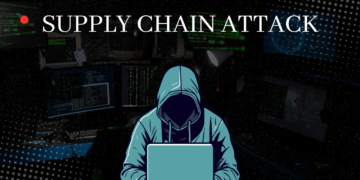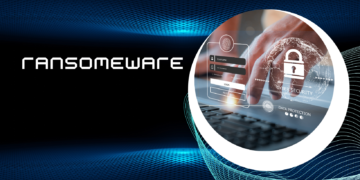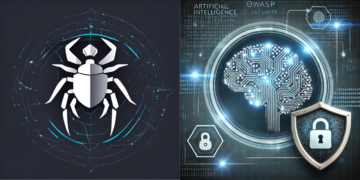Did you know that cybersecurity certifications can boost your salary by up to 16% on average? With cyber threats continuing to rise and skilled professionals in high demand, certifications are becoming essential for anyone looking to build a career in this field. Whether you’re aiming to strengthen your expertise or move up in your cybersecurity career, having the right certifications can make all the difference.
In this post, we’ll explore some of the top cybersecurity certifications available today, covering various specialisations and skill levels so that you can find the best match for your career goals.

1. Certified Information Systems Security Professional (CISSP)
The CISSP certification is one of the most widely recognised and respected credentials in the cybersecurity world. Managed by (ISC)², CISSP is ideal for experienced security professionals aiming for roles in senior management or specialised cybersecurity areas.
What You’ll Learn: CISSP covers a broad range of security topics, including security and risk management, asset security, and network security, making it suitable for professionals who need a comprehensive understanding of cybersecurity.
Who It’s For: This certification is best for those with several years of experience in cybersecurity. It’s particularly suited to professionals aspiring to roles such as Security Manager, Security Analyst, or Chief Information Security Officer (CISO).
2. Certified Ethical Hacker (CEH)
If hacking ethically to help organisations improve their security posture sounds interesting, the CEH certification is for you. Offered by the EC-Council, CEH trains professionals to think and act like hackers, but with the purpose of finding and fixing vulnerabilities.
What You’ll Learn: CEH covers a range of hacking techniques, including scanning, testing, and penetration testing. You’ll also learn about tools commonly used by attackers and how to defend against these methods.
Who It’s For: This certification is ideal for those in or aspiring to roles such as Penetration Tester, Security Analyst, or Network Security Specialist. A foundational understanding of network security is helpful before pursuing CEH.
3. CompTIA Security+
Security+ is an entry-level certification that covers essential security concepts and is ideal for beginners in cybersecurity. Offered by CompTIA, this certification is globally recognised and provides a solid foundation in basic security practices and tools.
What You’ll Learn: Topics include network security, risk management, threat detection, and incident response. This certification ensures you have practical, hands-on skills for addressing cybersecurity threats.
Who It’s For: Security+ is perfect for those just beginning their cybersecurity journey, including IT technicians, junior analysts, and anyone looking to transition into cybersecurity from a related field.
4. Certified Information Security Manager (CISM)
CISM, offered by ISACA, is a certification designed for those looking to move into managerial roles within cybersecurity. It’s focused on managing information security programmes rather than the technical skills required for hands-on security roles.
What You’ll Learn: CISM covers topics such as information risk management, governance, incident response, and developing security policies and practices.
Who It’s For: This certification is ideal for professionals aiming to become Information Security Managers or Compliance Managers. It’s also useful for anyone with a background in cybersecurity looking to advance to a leadership position.
5. Certified Cloud Security Professional (CCSP)
With cloud technology taking centre stage in business operations, cloud security skills are highly sought after. The CCSP certification, offered by (ISC)², is one of the top credentials for professionals specialising in cloud security.
What You’ll Learn: CCSP covers cloud security architecture, design, operations, and service orchestration. It focuses on safeguarding cloud environments and managing cloud-based security risks.
Who It’s For: This certification is suited for security engineers, security architects, and cloud administrators. It’s particularly relevant for professionals working with public, private, or hybrid cloud platforms.
6. GIAC Security Essentials (GSEC)
The GSEC certification, offered by GIAC (Global Information Assurance Certification), is for professionals who want to validate their practical knowledge of information security. GSEC is technical but does not require prior experience, making it an accessible option for a wide range of candidates.
What You’ll Learn: This certification includes key cybersecurity topics, such as network protocols, defence in depth, cryptography, and incident handling.
Who It’s For: GSEC is aimed at entry-level to mid-career professionals, including System Administrators and Security Engineers. It’s a strong choice for those looking to prove their practical abilities in cybersecurity.
7. Offensive Security Certified Professional (OSCP)
OSCP, offered by Offensive Security, is one of the most challenging certifications in cybersecurity and is respected for its rigorous, hands-on testing. It focuses on penetration testing and teaches candidates to identify and exploit vulnerabilities ethically.
What You’ll Learn: OSCP is highly practical, covering areas such as vulnerability scanning, buffer overflows, privilege escalation, and exploitation.
Who It’s For: OSCP is best suited for security professionals aiming for roles in penetration testing and red team operations. It requires significant dedication, technical knowledge, and problem-solving skills.
8. Cisco Certified CyberOps Associate
For those interested in working within a security operations centre (SOC) environment, the Cisco CyberOps Associate certification is a fantastic starting point. This certification focuses on the skills needed to detect and respond to security incidents in real-time.
What You’ll Learn: Topics covered include threat analysis, intrusion detection, and security monitoring. It’s designed to provide you with the practical skills needed in a SOC role.
Who It’s For: This certification is ideal for beginners aiming for entry-level security roles, especially in SOCs. It’s particularly beneficial for network administrators and IT professionals interested in cybersecurity.
Final Thoughts
In today’s digital landscape, cybersecurity certifications are more valuable than ever, offering clear pathways for career development and growth. Each certification serves a different purpose, from entry-level roles to advanced, highly specialised positions, allowing professionals to focus on areas that align with their goals.
Whether you’re just starting or looking to take on more responsibility, these certifications can provide the skills and recognition needed to succeed in cybersecurity. Consider the certifications that best match your current experience and ambitions and take the next step in securing both your career and the digital world around us.
























